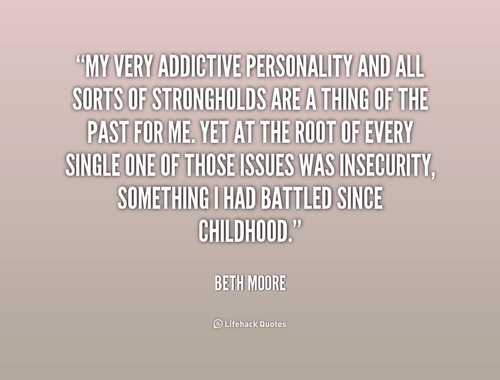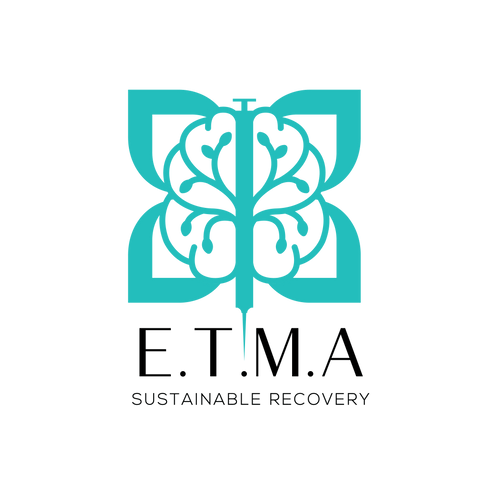Signs Of Addictive Personality Traits

What Is Addictive Personality?
An addictive personality is characterized by a higher likelihood of developing addictions to various things. This might involve becoming intensely passionate about something and forming an obsession or fixation. The root causes of getting carried away and excessively indulging in activities like video games, eating, sex, or drugs often originate from underlying issues such as hidden anxiety, depression, and poor impulse control.
Some of these behaviors may serve as a means to cope with unresolved or suppressed emotions. Initially, being addicted to something like a video game or food might seem harmless, especially when compared to substance abuse disorders. However, the concern lies in the potential for the object of addiction to change. This means that someone might go through a phase of being addicted to one thing, like video games, and then transition to other objects or substances of abuse.
Signs Of Addictive Personality
Understanding the signs associated with an addictive personality can shed light on the tendencies and vulnerabilities that may contribute to addictive behaviors. Here are some of the key signs that may indicate the presence of an addictive personality:
Repeated Engagement in Addictive Behaviors:
People with an addictive personality often find themselves repeatedly engaging in behaviors or activities that have addictive potential. This could include substance use (like drugs or alcohol), gambling, shopping, or even seemingly harmless activities like excessive gaming or eating.
Loss of Control:
Despite attempts to cut down or control their addictive behaviors, individuals with an addictive personality often find it challenging to do so. They may feel powerless to resist the urge to engage in these behaviors, even when they know they’re harmful.
Obsession or Fixation:
There’s often a strong preoccupation or obsession with the object of addiction. It can dominate their thoughts and behaviors, sometimes to the detriment of other important aspects of their life such as work, relationships, or personal responsibilities.
Escapism:
Addiction can serve as a way to escape from negative emotions or life stressors. People with addictive personalities may use their addictive behaviors as a coping mechanism to avoid facing underlying issues like anxiety, depression, trauma, or low self-esteem.
Risk-Taking Behavior:
Individuals with an addictive personality may be more prone to engaging in risky behaviors in general, beyond just their addictive habits. This could include impulsivity, sensation-seeking, or disregarding consequences in pursuit of pleasure or excitement.
Difficulty Seeking Help:
Despite experiencing negative consequences from their addictive behaviors, individuals with addictive personalities may have difficulty recognizing the need for help or may resist seeking treatment. This could be due to feelings of shame, denial, or a belief that they can handle the problem on their own.
Cycle of Addiction:
Addiction tends to follow a cycle of craving, indulgence, guilt, or shame, and then the cycle repeats. Individuals with addictive personalities may find themselves stuck in this cycle, struggling to break free even when they want to change.
Escalation:
Over time, addictive behaviors may escalate as individuals develop tolerance and need more of the substance or activity to achieve the same level of satisfaction or relief. This can lead to a vicious cycle of increasing consumption or engagement.
Distinguishing Addictive And Non-Addictive Personalities
Addicts often find themselves contrasting their experiences with those of individuals deemed “fortunate” enough not to possess an addictive personality. For many struggling with alcoholism, perplexity arises when observing individuals who can casually consume alcohol, stopping at just one or two glasses without any noticeable repercussions. Conversely, for addicts, even the slightest sip of alcohol can trigger a relentless craving, leading to a lifetime of turmoil and devastating consequences for themselves and their loved ones. This stark contrast can be attributed to inherent personality traits. While some individuals seem to evade addictive consequences, others, such as addicts, find themselves predisposed to a perilous path due to several factors:
Genetic Influence:
Research, such as the Minnesota Twin study, highlights a significant hereditary component in the development of addictions. Instances where one twin exhibits addiction, such as cocaine dependency, often coincide with a high likelihood of the other twin developing dependencies, albeit on different substances.
Neurotransmitter Abnormalities:
Irregularities in neurotransmitters like dopamine and endorphins drive addicts to seek methods of heightening their input, whether through chemical dependencies or engaging in addictive behaviors such as excessive gambling, overeating, or compulsive sexual activity.
Heightened Stress Response:
While some individuals possess emotional resilience to navigate the daily stressors of life, others find themselves overwhelmed and vulnerable. Those susceptible to heightened stress responses are more inclined towards addictive behaviors as a coping mechanism.
Lack of Coping Skills:
Even individuals sensitive to stress can avoid succumbing to addictive behaviors if equipped with healthy coping mechanisms, often fostered in nurturing home environments. However, those lacking adequate coping skills may turn to addiction as a means of escaping emotional pain.
Environmental Influence:
The environment plays a crucial role in shaping addictive tendencies. Hostile environments, including familial and social circles, can either fortify or dismantle an individual’s character, thereby influencing the likelihood of addictive behaviors.
Treatment For Addictive Personality
Treating an addictive personality involves addressing underlying issues and providing support to develop healthier coping mechanisms. Here are some approaches commonly used in treatment:
Therapy:
Various forms of therapy, such as cognitive-behavioral therapy (CBT), dialectical behavior therapy (DBT), or motivational interviewing, can be effective in treating addictive personalities. These therapies help individuals identify and change harmful thought patterns, develop coping strategies, and improve emotional regulation skills.
Support Groups:
Joining support groups, such as Alcoholics Anonymous (AA), Narcotics Anonymous (NA), or SMART Recovery, can provide valuable peer support, encouragement, and accountability in recovery. Being part of a community of individuals facing similar challenges can be empowering and offer a sense of belonging.
Medication-Assisted Treatment (MAT):
In cases where substance abuse is a significant concern, medication-assisted treatment may be recommended. Medications like naltrexone, buprenorphine, or methadone can help reduce cravings and withdrawal symptoms, allowing individuals to focus on their recovery.
Dual Diagnosis Treatment:
Many individuals with addictive personalities also struggle with co-occurring mental health disorders, such as anxiety, depression, or trauma. Dual diagnosis treatment addresses both substance abuse and mental health issues simultaneously, providing integrated care to promote comprehensive healing.
Lifestyle Changes:
Adopting a healthy lifestyle can play a crucial role in managing addictive tendencies. This includes regular exercise, a nutritious diet, adequate sleep, stress reduction techniques (such as mindfulness or yoga), and engaging in fulfilling activities that promote overall well-being.
Family Therapy:
Involving family members in therapy can be beneficial, as it helps address family dynamics, improve communication, and foster a supportive environment for recovery. Family therapy sessions can also provide education on addiction and offer guidance on how loved ones can best support the individual in their journey to recovery.
Relapse Prevention Strategies:
Learning how to recognize triggers, developing coping skills to manage cravings and stress, and creating a relapse prevention plan are essential components of treatment for addictive personalities. Through education and skill-building, individuals can better navigate challenges and maintain long-term sobriety.

